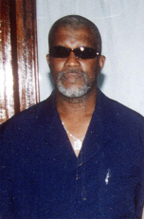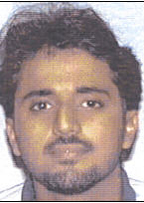– US prosecutors
US prosecutors recently disclosed that former PNC parliamentarian Abdul Kadir had links to Iran as he was once closely connected to the Islamic school in Guyana whose Iranian head was abducted in April 2004 and later killed.

It is the same Islamic school that one of the world’s most wanted terrorists, Adnan el-Shukrijumah, was connected to during his stay in Guyana.
El-Shukrijumah, who is wanted by the US for a number of offences including the recent plot to blow up New York’s subway system, has eluded the US authorities for a number of years hiding out in various countries, including Guyana.
In their arrest warrants for the elusive accused terrorist, the US authorities had indicated that he had in his possession Guyanese and Trinidadian passports, among others. While local authorities had indicated that an investigation would have been launched following the international arrest warrant for the Saudi Arabian-born man there were never any publicized findings of such an investigation.
According to the Federal Bureau of Investigation (FBI) website, El Shukrijumah speaks English and carries a Guyanese passport, but may attempt to enter the United States with a Saudi, Canadian, or Trinidadian passport. The website said the man is wanted in connection with possible terrorist threats against the United States and a US$5 million award is up for grabs for information leading directly to his capture.

While on the witness stand during his trial and that of another accused, Russell Defreitas, for plotting to blow up the JFK airport, Kadir on Wednesday denied an accusation by the US that he spent years secretly working as a spy for Iran — passing along information about Guyana’s economy, foreign policy and military to Iranian officials.
However, Kadir did admit under cross-examination that he drafted regular reports for the Iranian ambassador to Venezuela, which included details like the “low morale” in the Guyanese army. The documents he allegedly drafted included a five-year development plan to promote Islam in Guyana, which included references to infiltrating the military, police and other government agencies.
“Is it fair to say that you’re a spy for the Iranian government?” Assistant U.S. Attorney Marshall Miller asked Kadir after showing him reports on Guyana that he sent to Iran’s ambassador to Venezuela.
“No sir,” Kadir answered.
Trap
It is believed that it was Shukrijumah’s reported presence in Guyana that propelled US authorities to send informant Steven Francis to Guyana in an attempt to lure the elusive terrorist into the trap of plotting to blow up one of the most well-known airports in the world.
But instead Francis met Kadir, another Guyanese, Abdul Nur who has since pleaded guilty to one count of providing support to terrorists, and later Trinidadian Kareem Ibrahim, who has been granted a separate trial because of illness.
Francis visited Guyana in the company of Defreitas, who according to federal authorities said he was the mastermind of the plot to blow up the airport, though many have said that this was impossible to execute.
Reports are that while he was in Guyana, Shukrijmumah was once safe and secure under the protection of Swiss House Cambio boss Farouk Razac, who died in May 2007 under mysterious circumstances at his home.
His wife, Carolan Lynch, was subsequently charged with his murder but was freed the following year after a magistrate found that no prima facie case had been made out against her.
Razac was found dead on the floor of their Eping Avenue, Bel Air home. There was evidence he had bled through his nose and mouth and his hands were at his neck. A television set, which was usually at the foot of the bed, was found on the floor. An autopsy later confirmed that he had been strangled.
Lynch and Razac had previously been charged with unlawful possession of four 9 mm magazines, one Beretta automatic pistol and 120 rounds of 9 mm ammunition, which were found at the same home on November 10, 2006. They were granted $1 million bail each and after her husband’s death Lynch faced those charges alone, but they were later dismissed.
International media outlets described Razac as a radical Sunni who was affiliated with Jamaat ul-Muslimeen, Trinidad’s homegrown terrorist group, and served to secure funding for jihadi ventures.
According to reports Shukrijumah was spotted at the Swiss House Cambio by several witnesses, including self-proclaimed death squad informant George Bacchus. Bacchus himself was gunned down in 2006 following his many public statements about the existence and operation of a death squad.
It was at the cambio that Shukrijumah met one of Razac’s closest clients, Imam Muhammed Hassan Abrahemi, the director of the International Islamic College for Advanced Studies, a small Shiite school in Georgetown that received large amounts of revenue from the government of Iran.
And it was there he also allegedly became acquainted with Nur, who ran errands for Razac and Kadir, who served as the assistant director at Abrahemi’s Islamic College.
Abrahemi was kidnapped by two masked men as he was leaving the Islamic College on April 2, 2004 and several days later his body was discovered in a shallow grave on the outskirts of Georgetown.
The hit appeared to be professional as the Iranian-born man was shot twice in the back of the head while assuming a kneeling position. His mouth had been taped shut with duct tape, and his hands and feet were bound by nylon cords.
While local police launched an intensive investigation the perpetrators of the crime were never caught and one of Kadir’s sons later took over the helm of the college but it eventually closed its doors. It is believed that undercover agents had provided Kadir and his cohorts, through Francis, with money and logistical support to launch the plot to blow up the jet fuel supply tanks and pipelines that feed fuel to the JFK International Airport in Queens, New York.
Later, US Attorney Roslynn Mauskoff appeared before the press to say that the planned attack represented “one of the most chilling plots imaginable” — a plot which might have caused “unthinkable devastation.”
Kadir earlier this week testified that he feigned interest in the plot as he had hoped that Francis and Defreitas would have hooked him up with rich American Muslims whom he would have approached to fund the building of a mosque in his hometown, Linden.
In reality, the plot was a ploy since exploding the fuel tanks represented a technical impossibility. Jet fuel does not produce explosive force, and the pipelines and fuel tanks that are buried beneath Queens have safety valves to prevent any mishap.
The assumption by federal authorities that they might have lured Shukrijumah out of hiding was wrong as he failed to appear at any of the planning sessions in Trinidad and Guyana, and the federal officials were left only with a hefty bill.
Reports are that Shukrijumah’s father Gulshair was born in Guyana, where his grandfather Mohammad Jumah ran a general store. One of eleven children, Gulshair developed an interest in Arabic and began working as a tailor.
At the age of 32, he moved to Cairo where he studied at the radical al-Azbar University, and then Medina, where he enrolled at al-Madina al Manawarah (The Islamic University of Medina) and became steeped in the writings of Ibn Taymiyah and Sayyid Qutb.
In Saudi Arabia, Gulshair taught at several madrassahs, and at the age of 42 met and married Mareed Zubrah Abu Akmed.
Two years later, on August 4, 1975, Mareed gave birth to their first child Adnan. Three more children were born to the couple before the family moved to Trinidad, where Gulshair received a monthly stipend of $1,500 from the Saudi government to spread the doctrine of Wahhabism. The family later moved to the US.



